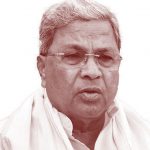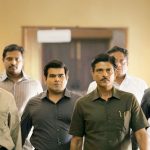A Tight, Long Hug
Memories of India evoke love, endless positivity
 Mehr Tarar
Mehr Tarar
 Mehr Tarar
Mehr Tarar
 |
28 Feb, 2020
|
28 Feb, 2020
/wp-content/uploads/2020/02/For-Mehr-Tarar-1.jpg)
Golden Temple Complex, Amritsar
Delhi felt familiar. Deeply personal yet indescribable, being in Delhi was like visiting a place I knew as a child. A place much loved. That feeling of warmth that is an evocation of memories that are half-forgotten, barely there, but have always been a part of you. Delhi gave me a tight, long hug. I knew Delhi would always be special.
It was April 2013. I had never been to India. I didn’t know anyone in India. Despite a lifelong love of Indian movies and music and some of its cricketers, India was the old neighbour that was never a friend. Talking to a cousin who had visited India many times and had close friends in Amritsar and Delhi, her suggestion was that I travel through Wagah so that I could visit the Golden Temple on my way back to Lahore. The visa was done quickly, without an issue. I was going to Delhi to interview Shashi Tharoor. If only I knew how that simple meeting was going to be the subtext of the next many years of my life.
Amritsar was so much like a Pakistani Punjabi city I couldn’t believe I was in India. A friend of my cousins, a wonderful Sikh in his late twenties whom I’d refer to as K, picked me up from Atari and took me to his house where his family had a celebration for the birth of a new baby. Their Punjabi sounded different, their hospitality was unrehearsed, and was an Indian repetition of what I had seen in my own Punjabi family all my life: generous, loud, warm. I spent a night at their place after my second visit to Delhi on December 26th, 2013.
In that day were forty-five minutes that became a most precious memory that has jagged edges. Someday, when I’m no longer the me that I’m today—afraid of facing the truth that hurt—I may be able to word it in a way that makes sense. To me.
In February 2014, I had plans to go to Amritsar to attend K’s wedding, a big Punjabi shaadi spread over many days and two cities. I didn’t go. I couldn’t go. In January 2014, I became a household name in India. The pointlessness of writing about the two days that altered my life in ways too gigantic to be delineated in mundane words takes me by my shoulders and shakes its head. Someday, when those two days and their aftermath don’t take my breath away with their senseless coldness and enormity, perhaps, I will write about it. Perhaps it will stay within me, haunting every word that I ever write about India.
I didn’t know if I’d ever go to India again. My two visits in 2013 were for the interviews I did with Tharoor and Omar Abdullah. In April 2013, I was the op-ed editor of Daily Times, a national daily of Pakistan. In November 2013, my eighteen-month long journalistic career ended. In December 2013, I met Abdullah simply as a Pakistani who had the wish of long-lasting peace and sustainable civility between Pakistan and India even if friendship was just a dream that abruptly ends when you suddenly wake up at 4 am.
Omar Abdullah was utterly gracious despite my incessant chatter. The Punjabi me has a proclivity to talk without punctuation. I met Farooq Abdullah in Kasauli in 2015, and in Delhi in January 2016. Talking to him was like being with an old friend. He was every bit the person that the world knows him as: fabulous, irreverent, larger-than-life. Both the Abdullahs, as concerned Kashmiris, wished for peace with Pakistan.
Omar was very much a Kashmiri who thought of himself as Indian but was very responsive to the idea of changing the dynamics of the almost-relationship between Pakistan and India. Today, Omar Abdullah along with his father, Farooq Abdullah, and his political opponent Mehbooba Mufti are under house arrest in their Kashmir that India has forcibly made its own without bothering with that little detail: to have Kashmiris on board for decisions that change everything for Kashmiris.
Many Kashmiri leaders, including the former Indian Administrative Service topper, Shah Faesal, are under house arrest. India claims Kashmir is peaceful, prosperous and on its way to become a happy Indian state. Kashmiris have a different story to tell. Of unquantifiable economic losses, months of curfew, shutdown of internet, depression and thoughts of suicide. Nothing about the ‘new’ Kashmir is normal. But Kashmiris, unlike millions of Indians, are not allowed to protest the many wrongs inflicted on them.
In a state–now Union Territory of Jammu and Kashmir–where those who called themselves Indian and were part of various governments in Delhi, the three former Chief Ministers—Farooq and Omar Abdullah and Mehbooba Mufti—have been charged under the Public Safety Act, I wonder what new punishment would be the fate of those who call themselves freedom fighters. If Omar Abdullah is labelled ‘anti-national’ and a ‘traitor’ in Modi-Shah’s India, I can’t begin to imagine what will happen to Mirwaiz Umar Farooq and others.
That is what happens when I write on Kashmir. How do I write about India today without mentioning Kashmir? When 8 million Kashmiris are in pain, how do I remain detached is a question that has no simple answer. India is a place that for me could be in Antarctica today. Inhospitable, impossible to visit, described in clichés that are painfully true. Pakistan and India have reached a point of no talking in their almost-relationship that was always a little less than a reality and was never more than a wishful thought. I still love Indian movies and music and one of its cricketers—that one Virat Kohli. I write for Open, India. I have a few virtual friends, mostly in the media. I still wish for long-lasting peace and sustainable civility. I don’t hope much will change tomorrow, two months later, a year ahead.
Would I ever visit India again? Do I want to visit the India of 2020? Would Delhi still feel like the home of a much-loved great-aunt whose hugs are tight and long? Do all Indians despise Pakistanis as the blind enemy that India’s ruling party and much of the Indian media make it out to be? Most Pakistanis view India with the same suspicion and mistrust and dislike today. India is no longer just movies of Amitabh Bachchan, Deepika Padukone and Ranveer Singh, love songs of Kishore Kumar and Arijit Singh and the magnificent sixes of Virat Kohli. India is the autocrat in Kashmir. India is the nationalist behemoth that is hell-bent on dividing even those it calls its own through its implementation of the Citizenship Amendment Act and the National Register of Citizens.
But is India of 2020 just that? Binaries of black and white don’t work when it comes to 1.30 billion Indians. Every day, there are stories of those who shout hate slogans and wish to divide a secular India in the name of religion, those who use political cover for their mission to mukt India of the ‘undesirables’—Dalits, Muslims, protesting women and students, those who dare to oppose, those who have the courage to speak up. That India is a reality. But once in a while, there is a tiny, untold story that shines like a memento of the India I visited in 2013 and in 2015 and 2016.
A friend of mine from Lahore was in Delhi a few days ago. He is an industrialist from one of the top business families of Pakistan. When I asked him what took him to Delhi, he texted me: “Well, I had some T*** meetings and a dear friend’s daughter’s wedding. When I was planning to go, everyone back home said don’t go, given the political situation. I am a frequent visitor to India, never had a bad experience. And my friend was insisting that I come for the wedding; he had attended my son’s wedding a couple of years ago, so I did. I was expecting a bit of aggression and scrutiny at the immigration at Wagah border but they [Indians] were super nice, so much so that the immigration officer filled up my card for me. Anyway, have been here for a couple of days, the friends I have and the other people I met are only curious about Pakistan; I sensed no animosity at all. I guess the only people who have an axe to grind in such situations are politicians and the ‘powers that be’. People-to-people, I have never faced any issues ever, not even this time. Some of my friends who visited recently also shared the same sentiments with me.”
Pakistanis and Indians have that crazy, wonderful, hard-to-pinpoint love thing that is beyond borders covered in barbed wire, and slogans that divide in mono-hued clichés. When they meet, they know they connect on a level that is impervious to state polices of hate and division. Not much changes in their stories of the love and warmth they receive in the other’s country. Be it 2013 or 2020.
One of my son Musa’s best friends in New York is Rohit, an Indian from a city near Mumbai. They stay in touch even in holidays. During our three-day trip to Abbottabad during Musa’s winter break a month ago, I received a text from Rohit. Having been unable to talk to Musa for a couple of days—Musa was offline—he sent a worry text to me, wondering how his friend was. Musa and Rohit are two friends who define one another in the context of the bond they share. A Pakistani and an Indian who love to play the guitar and are there for one another, in New York, and in Lahore, and that city near Mumbai.
I have been to India six times. All my memories of India have that warm fuzzy feeling of much love, endless positivity. After what happened to me in January 2014, it was in October 2015 when I visited India again. A little hesitant, a tad scared, I didn’t know what to expect. My frequent appearances on various Indian talk shows on Pakistan and India between May 2014 and October 2015 had made me a familiar face after being a sensational addition in countless media reports on the Tharoor ‘case’ that had nothing to do with me. Going as a speaker at the Khushwant Singh Literary Festival in Kasauli, I had no way of knowing how people would react to me. What happened was a three-day long expression of endless warmth and formation of new friendships.
During my one-on-one session with an elderly gentleman, a veteran journalist, attended by all Pakistani and Indian speakers at the festival, some very famous names, I remember a woman interrupting my interviewer. Done with my consent, he asked me about my alleged relationship with Shashi Tharoor. Uncomfortable, I tried to answer without saying much. No idea who she was but she stopped him that he had no business asking me personal questions. Her husband joined her. Moved, I thanked her later.
In Kasauli, I became friends with the very wonderful Shunali Shroff, a fabulous writer from Mumbai. We stayed in touch, met in Kolkata at another festival in January 2016, and in Lahore a couple of years ago. Shunali was in Lahore to attend a conference. She bought some clothes in Lahore, toured the city, and interacted with many Lahoris. Back in Mumbai, she wrote an article describing in her inimitable way how she fell in love with Lahore.
Shunali is not and wasn’t the last Indian who responded to Lahore that way. Lahore is like that. The old, impossible romantic that seduces in words that are from the heart, with hugs that last.
In March 2016, I had a meeting with the Delhi Police who had contacted me earlier that year with the request to talk to them when I was in Delhi. Over lunch in a Chinese restaurant of a five-star hotel in Safdarjung, I had a long talk with—I forget the number—three or four police officers. Just like everyone else I had met in India since my first trip in April 2013, those officers were utterly gracious and very respectful. I didn’t hear from them after that day.
Safdarjung evokes lovely memories of my stay with an amazing family in March, and then in May. A lawyer, his wife and their older son, all strangers, became my friends when the organisers of the AoL conference that I attended in Delhi, arranged for me to stay at their house. We stay in touch with infrequent texts, and I remain grateful for their amazing hospitality.
May 2016 was the last time I was in Delhi. I was there for the Women Economic Forum. I remember that trip for myriad happy reasons. The one that would certainly go in my memoir was my two-minute interaction with Amitabh Bachchan, my favourite Indian actor, at the Hindustan Times Style Awards.
All around us are signs and omens that once comprehensible, take us to a particular point in time and destiny that is fascinating in its penchant for surprises. My Delhi 2016 story is tiny chapters on my interaction with six women whom I remember with much fondness after I take a breath from my gush-mush about Bachchan. I also met Abhishek Bachchan who met me so nicely I couldn’t stop talking about it for a long time. Ah, the six women.
Harbeen Arora, the founder and organiser of the Women Economic Forum in Delhi and elsewhere; Sonal Kalra of Hindustan Times; Shazia Ilmi of the BJP, Sadhavi Khosla, writer and activist; and sisters, Rosie Deep and Mandy Atwal of Chandigarh. Harbeen invited me to the conference and was the perfect host. Shazia and I were on a two-person panel; we met over coffee at the hotel and made plans to have dinner. The dinner didn’t happen, but Shazia was so sweet she sent me a sari to wear at an event. Sonal was sitting next to me on a panel on media, and on hearing me talk to my journalist friend, Shekhar Gupta, how much I wanted to meet Bachchan, she sent me an invitation for the HT Style Awards event. A total stranger, Sonal’s gesture was sweetness that I deeply value. Sadhavi was my Twitter buddy; she came to meet me and gifted me a salwar-kameez. With the two siblings from Chandigarh, I chatted in Punjabi; they gave me a pair of very nice shoes that we in Pakistan call khussa.
Every woman that I met in Amritsar, Kasauli, Kolkata and Delhi in my four trips between October 2015 to May 2016 was so incredibly gracious to me I think of them with utmost fondness. The same goes for the men I interacted with. My friend Rajdeep in Amritsar; CNBC-TV18’s Bhupendra Chaubey and his wife; the Sikh couple at whose house I had dinner; Nishtha Gautam of The Quint; Atiya Zaidi and her husband S Irfan Habib; Gaurav Sawant, Anjana Om Kashyap and Raj Chengappa of India Today; Sumit Awasthi of then CNBC-TV18 and now ABP News; Pranjali Singh of India News World. Some remain unnamed, but I think of them with much love.
Virtually, all of them are still friends. Hateful slogans about Pakistan may work as an electioneering tool, they would never have the power to break friendships that are based on mutual love and respect. If not in my lifetime, I want Pakistan and India to be truly good neighbours, if not friends. I’ll never stop wishing for that.
Till we meet again.

/wp-content/uploads/2025/07/Cover_Dalai-Lama.jpg)










More Columns
From Entertainment to Baiting Scammers, The Journey of Two YouTubers Madhavankutty Pillai
Siddaramaiah Suggests Vaccine Link in Hassan Deaths, Scientists Push Back Open
‘We build from scratch according to our clients’ requirements and that is the true sense of Make-in-India which we are trying to follow’ Moinak Mitra